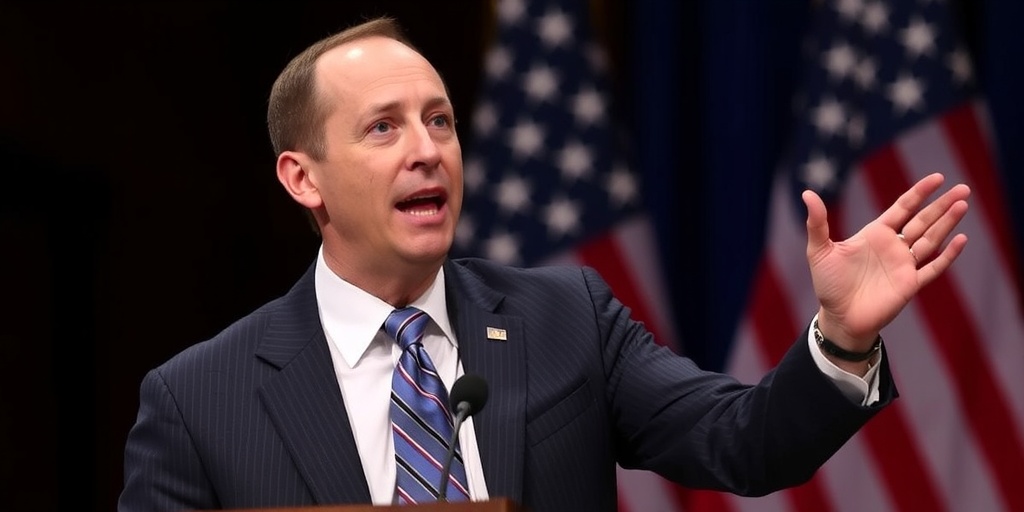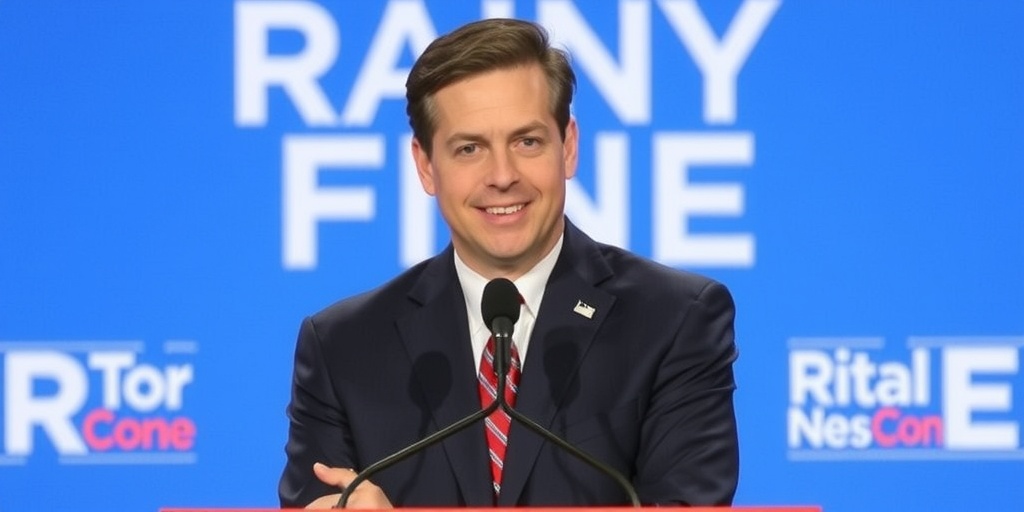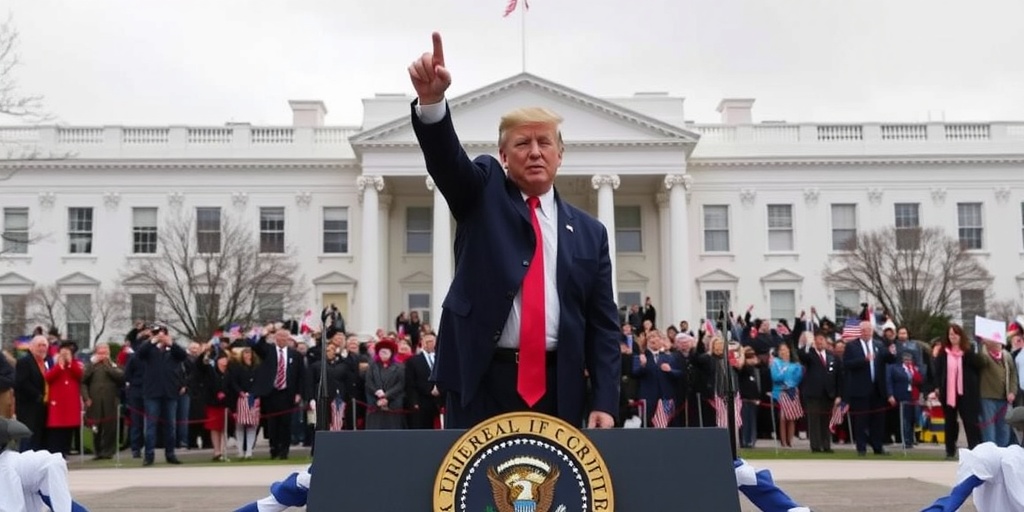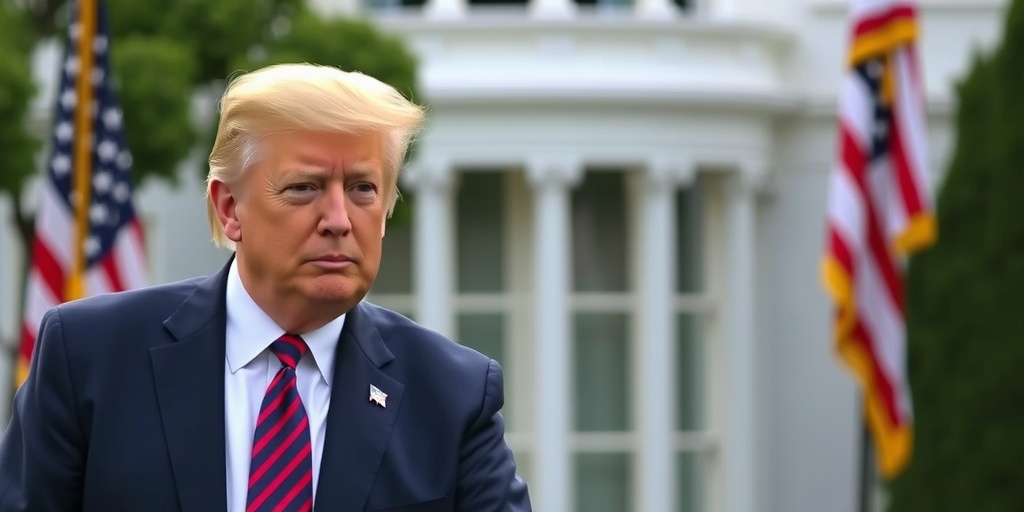Now Reading: Stephen Miller Gains Unprecedented Power, Echoing Trump
-
01
Stephen Miller Gains Unprecedented Power, Echoing Trump
Stephen Miller Gains Unprecedented Power, Echoing Trump

Stephen Miller’s Rise to Power: The Architect of Trump’s Immigration Agenda
In a striking turn of events over the past decade, Stephen Miller, once a lowly Senate staffer, has emerged as one of the most influential figures in American politics. His recent meeting with Meta’s billionaire CEO, Mark Zuckerberg, at Mar-a-Lago in late 2024 exemplifies this transformation. During their discussion, Miller, now a senior advisor to President-elect Donald Trump, made it abundantly clear that any collaboration must align with Trump’s hardline policies, particularly those targeting immigration and corporate diversity initiatives.
Once known for his anti-immigration rhetoric, Miller’s power dynamics have shifted dramatically. In their meeting, he urged Zuckerberg to support a reform agenda that emphasized a crackdown on immigration, as well as a counter to the diversity, equity, and inclusion (D.E.I.) practices that have permeated corporate America, including Meta. Zuckerberg appeared receptive to Miller’s message, indicating that he would not impede the Trump administration’s aims and would prioritize, instead, the development of technology products.
The November 2024 meeting at Mar-a-Lago showcased not just Zuckerberg’s capitulation but also the substantial clout Miller has amassed. Rising from obscurity as an aide to former Senator Jeff Sessions, Miller has become a pivotal player in Trump’s political machinery. In his current roles as deputy chief of staff and homeland security advisor, he possesses the authority to shape domestic policy and steer initiatives across various federal agencies.
One of Miller’s most significant strengths is his unwavering focus on immigration—the cornerstone of Trump’s platform. As the architect of the team drafting a series of executive orders set to be unveiled after Trump’s inauguration on January 20, 2025, Miller has meticulously orchestrated a plan to advance his rigid immigration policies, which may include efforts to dismantle birthright citizenship, label drug cartels as foreign terrorists, and reinstate Title 42, a public health measure that could facilitate stringent border controls.
Colleagues and allies paint Miller as a strategic mastermind, one who has dedicated years to plotting out rules and expanding a powerful network among far-right legislators, media figures, and donors. Unlike his earlier tenure in the Trump administration, where he operated from a position of lesser influence, he returns now with greater credibility and an expanded team of loyalists.
Notably, his relationships with influential figures like Elon Musk have deepened, providing another layer of support for his agenda. This positioning within both the political sphere and the private sector grants Miller unique opportunities to apply pressure beyond the boundaries of traditional governance.
In the years since Trump’s presidency ended, Miller focused on fortifying his influence and ensuring loyalty among Republican lawmakers. His work has not gone unnoticed by legislators like House Speaker Mike Johnson, who has publicly lauded him, alongside others who often seek his counsel on policy matters. This camaraderie within the party illustrates Miller’s effective grassroots political strategy, governed by his belief that the opposition has limited capacity for resistance.
Taking lessons from the past, Miller employs tactics designed to evoke frequent responses from those he sees as opponents to Trump’s agenda. By overwhelming detractors with a barrage of policy changes and communications, he hopes to minimize their capacity for organized pushback. This battle strategy reflects his historical approach, which has evolved into one of secrecy and direct coordination with outside legal teams, bypassing traditional channels that might pose a risk of opposition.
As for Miller’s relationship with Trump, it appears steadfast. Throughout their time together, he has remained a loyal adviser, even when such allegiance has put him at odds with other past allies like Sessions. His conservative views and emphasis on stricter immigration policies resonate powerfully with Trump, who appreciates Miller’s dedication to their mutual goals.
During his brief foray into the private sector, Miller established the America First Legal Foundation, which has emerged as a formidable tool for advocacy and litigation on behalf of conservative interests, charging into the legal battles that precede and often accompany the transition of power.
Now, as Trump gears up for his return to the presidency, Miller stands ready to translate his long-term strategies into impactful executive actions. With immigration firmly on the agenda, he aims to dismantle structures that have allowed undocumented immigrants to remain in the U.S. and could potentially enact mass deportations, legislation for which he has been laying the groundwork over the past several years.
In conclusion, the path from Senate staffer to a central figure in American politics illustrates not only Stephen Miller’s personal ascent but also reflects the shifting landscapes of influence within the Republican Party. As the Trump administration repositions itself, Miller’s unwavering focus on enforcing stringent immigration policies and his strategic alliances position him as a formidable force capable of enacting transformative and controversial changes in U.S. policy.
Stay Informed With the Latest & Most Important News
Previous Post
Next Post
-
 01New technology breakthrough has everyone talking right now
01New technology breakthrough has everyone talking right now -
 02Unbelievable life hack everyone needs to try today
02Unbelievable life hack everyone needs to try today -
 03Fascinating discovery found buried deep beneath the ocean
03Fascinating discovery found buried deep beneath the ocean -
 04Man invents genius device that solves everyday problems
04Man invents genius device that solves everyday problems -
 05Shocking discovery that changes what we know forever
05Shocking discovery that changes what we know forever -
 06Internet goes wild over celebrity’s unexpected fashion choice
06Internet goes wild over celebrity’s unexpected fashion choice -
 07Rare animal sighting stuns scientists and wildlife lovers
07Rare animal sighting stuns scientists and wildlife lovers





















